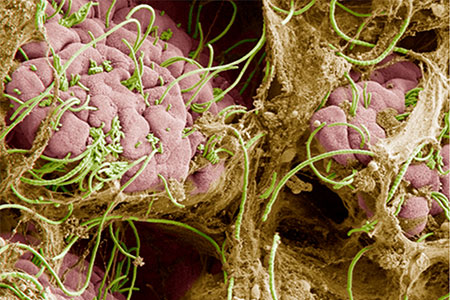
Segmented filamentous bacteria (SFB) in the terminal ileum of an
8-week-old Taconic B6 mouse
Previous epidemiological studies have shown an association between hospitalization during pregnancy due to severe infection and the risk of autism in the offspring. In the two new papers, the researchers took advantage of mouse models to demonstrate that bacteria in the mother's gut can influence whether maternal infection leads to autistic-like behaviors in the pups and furthermore linked the altered behavior to changes in specific brain regions.
In the first paper, "Maternal gut bacteria promote neurodevelopmental abnormalities in mouse offspring1," the authors showed that pregnant mice that had been colonized with the mouse commensal segmented filamentous bacteria (SFB), or human commensal bacteria that induce intestinal TH17 cells, were more likely to produce offspring with autism-like behavior after immune activation during pregnancy by injection of a viral mimic (maternal immune activation; MIA). They also found that the adaptive and innate immune system of pregnant mice produced the inflammatory cytokine IL-17a in response to MIA, an observation that was not observed in non-pregnant mice. The results suggest that TH17-promoting gut bacteria can increase the risk of neurodevelopmental syndromes, including autism, in the offspring of mothers that have experienced maternal immune system activation due to infection or autoinflammatory disorders during pregnancy.
In the second paper, "Reversing behavioural abnormalities in mice exposed to maternal inflammation2," the researchers — led by the same senior authors as in the first paper — could link abnormal regions or patches in mice which experienced MIA to behavioral autism-like abnormalities as previously described by the authors. These abnormal patches were identified to be most common in a cortical part of the brain known as S1DZ. They found that activation of neurons in this region could induce autism-like behavior in wild-type animals whose mothers had not undergone MIA. Reduction of the neural activity on the other hand rescued the behavioral abnormal phenotype in offspring of MIA-mothers. As such, the work identifies a specific brain region that mediates behavioral abnormalities observed in offspring exposed to maternal inflammation.
The mice used in the second study were from mouse colonies carrying SFB, and in accordance with the observations of the first paper, the authors found that the size of cortical patches in MIA offspring of SFB-positive mothers was highly correlated with the severity of the behavioral phenotype. Offspring of SFB-negative MIA-exposed mothers did not exhibit the abnormal cortical patches.
Taconic Biosciences is the only commercial animal vendor reporting on the presence of SFB in mouse and rat colonies. Taconic offers mice and rats at different health standards; this allows for sourcing of animals from either an SFB-positive or SFB-negative colony.
Check out Taconic's Microbiome Solutions and Germ-Free Mice if you are interested in learning more about Taconic's products or services supporting research on the role of bacteria and the microbiome in health and disease.






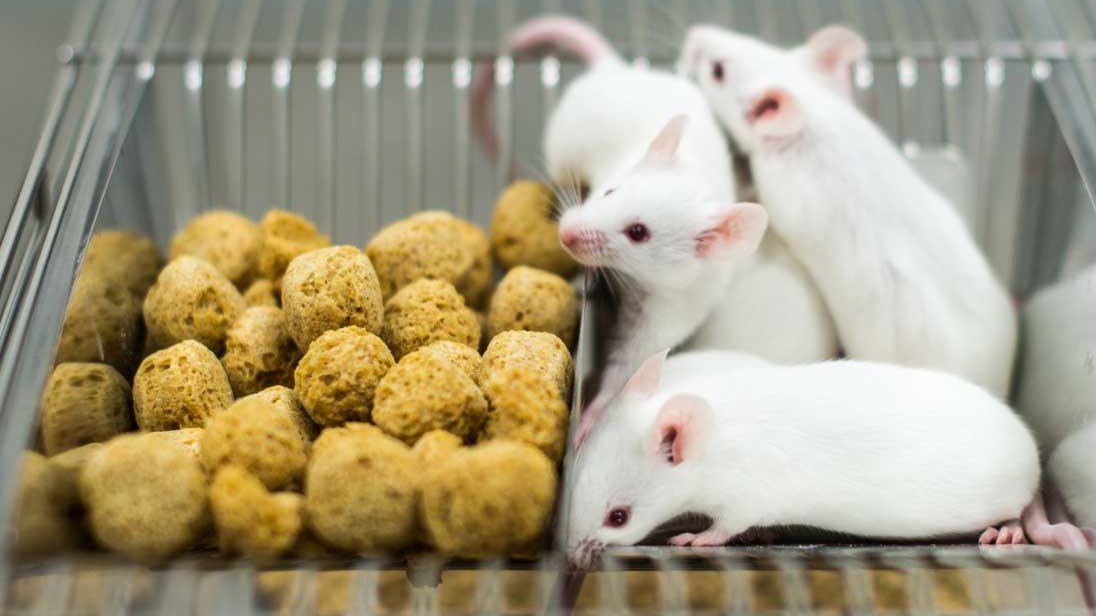
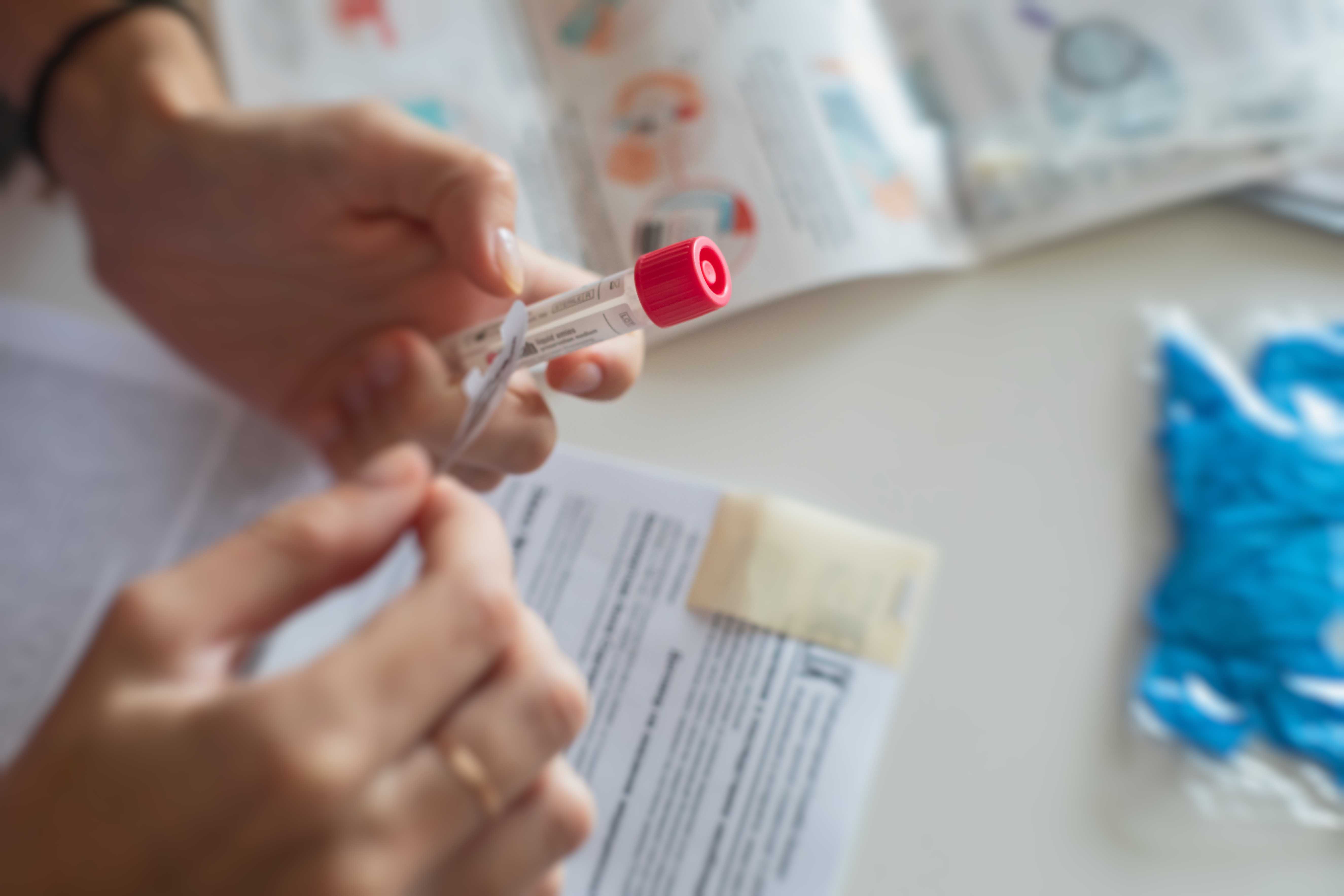







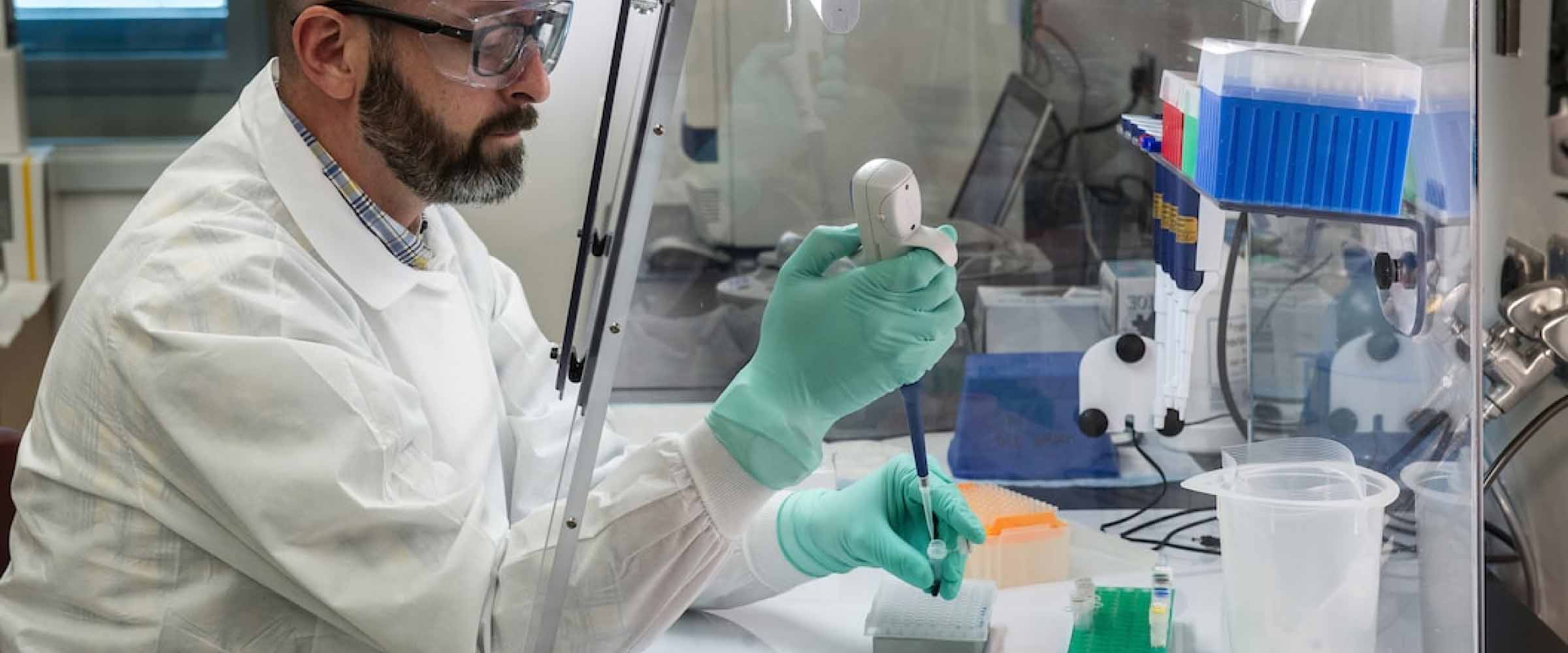
.jpg)

.jpg)
.jpg)
.jpg)
.jpg)
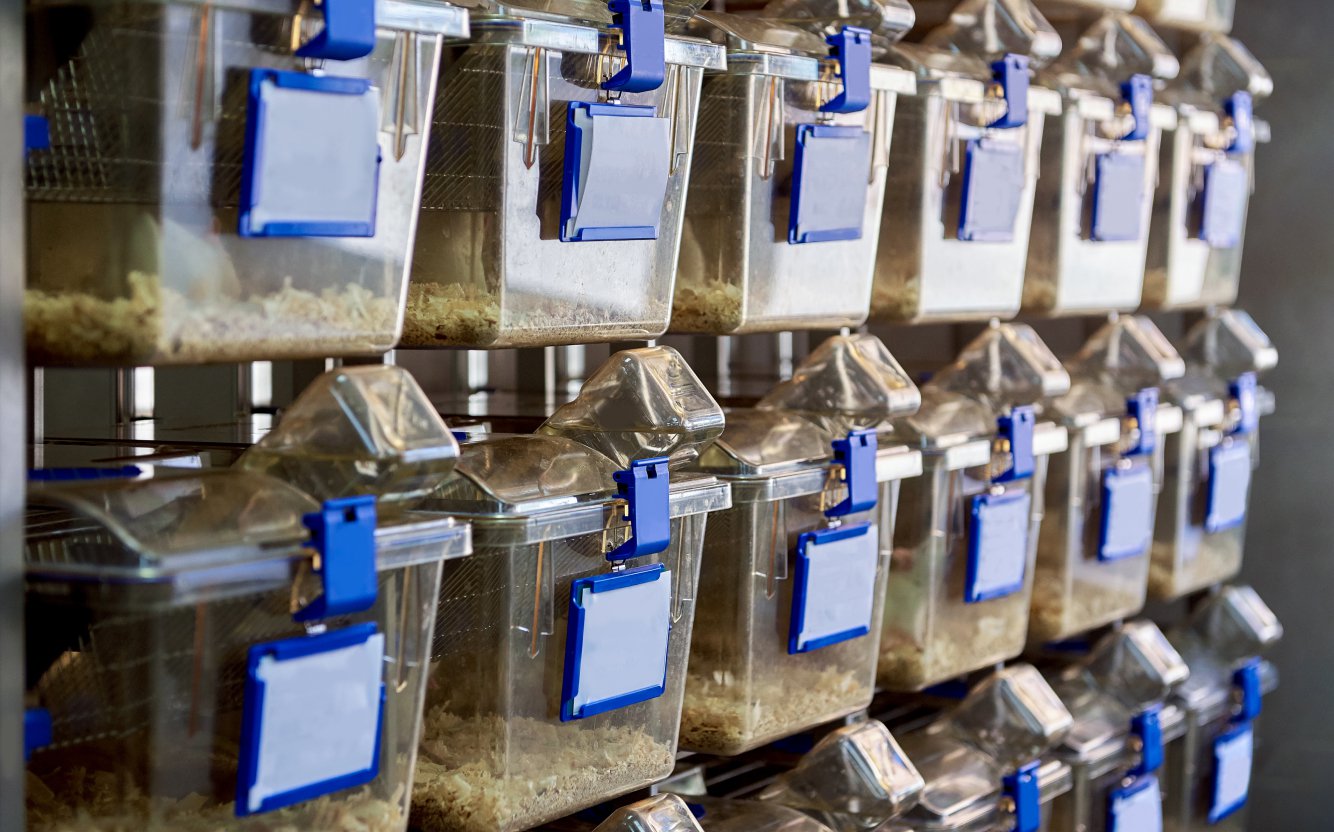
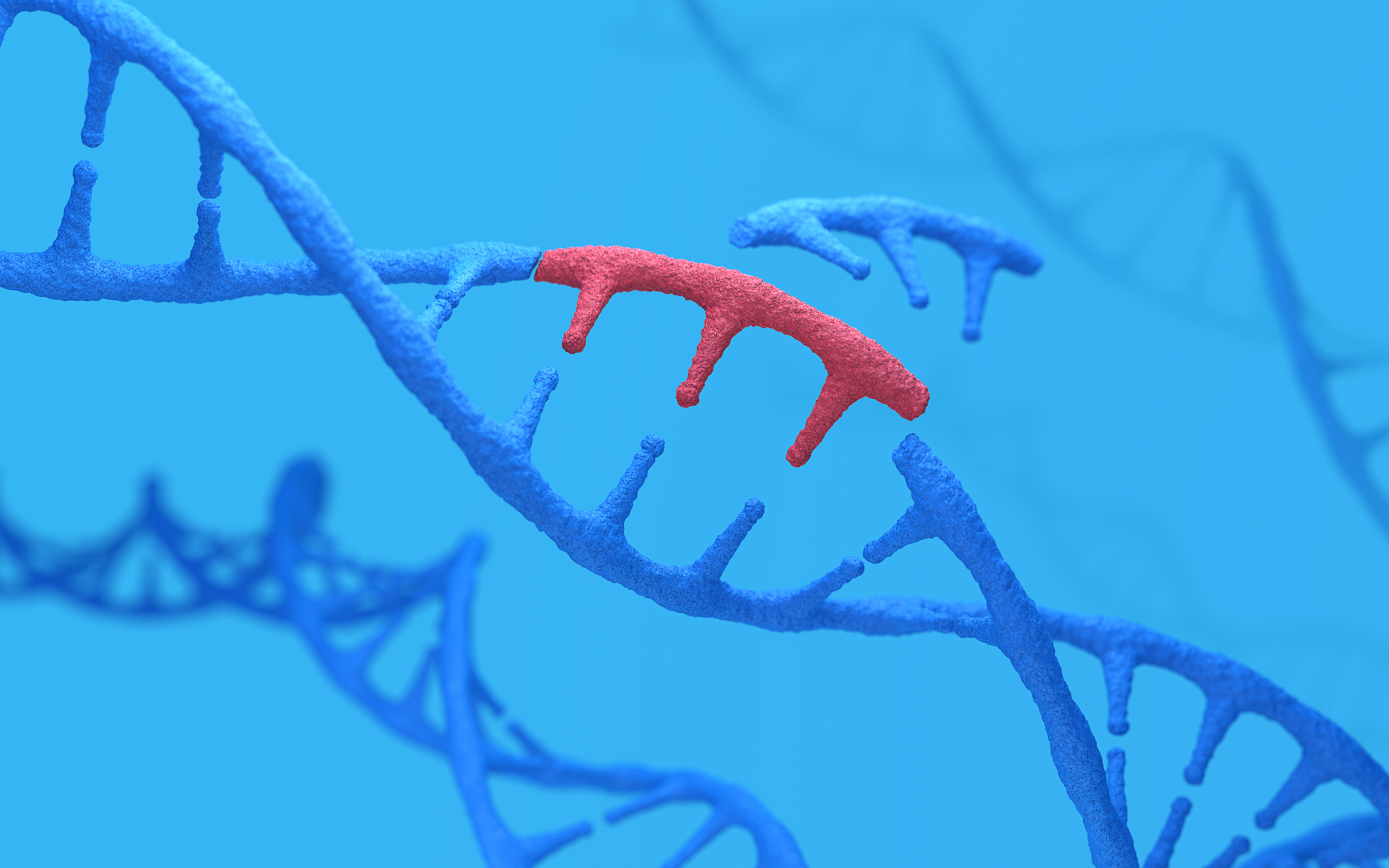
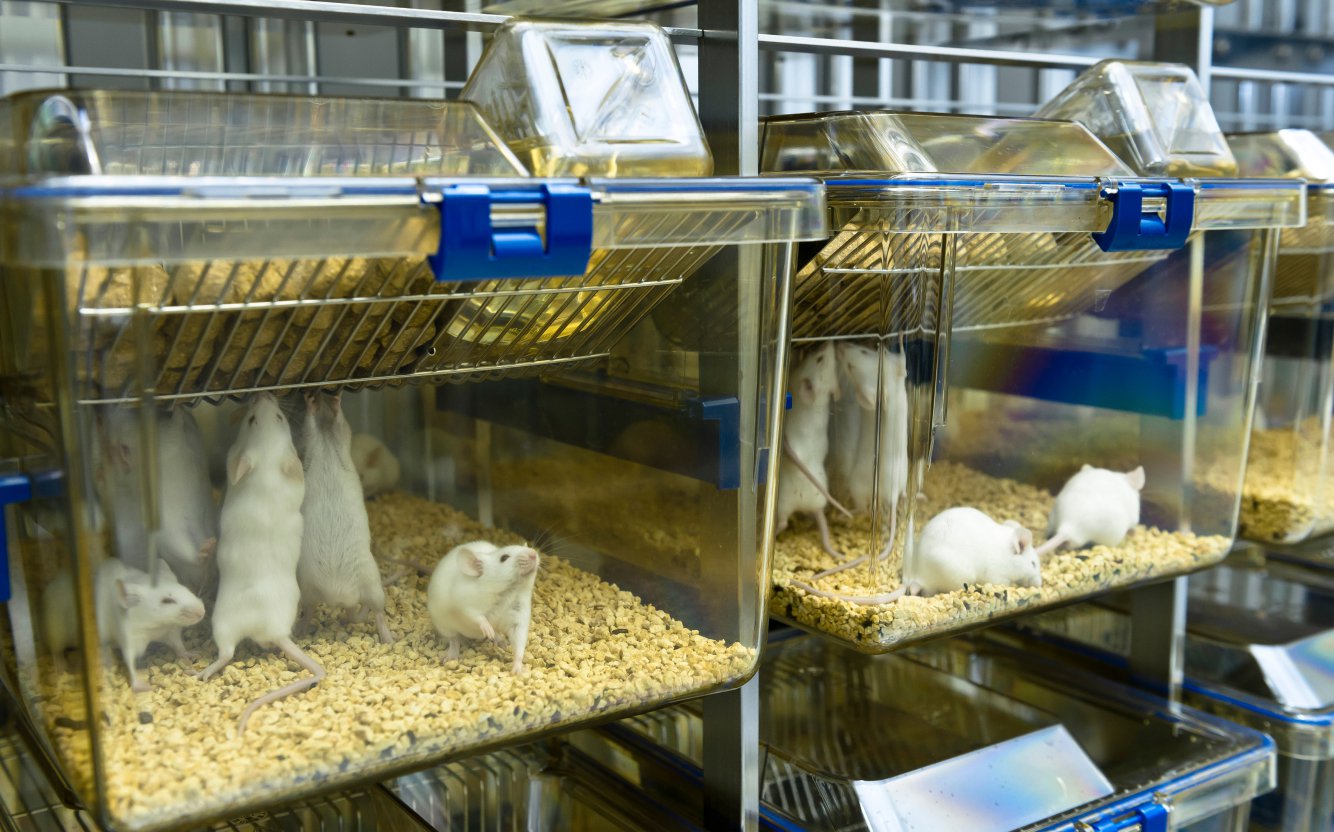


.jpg)

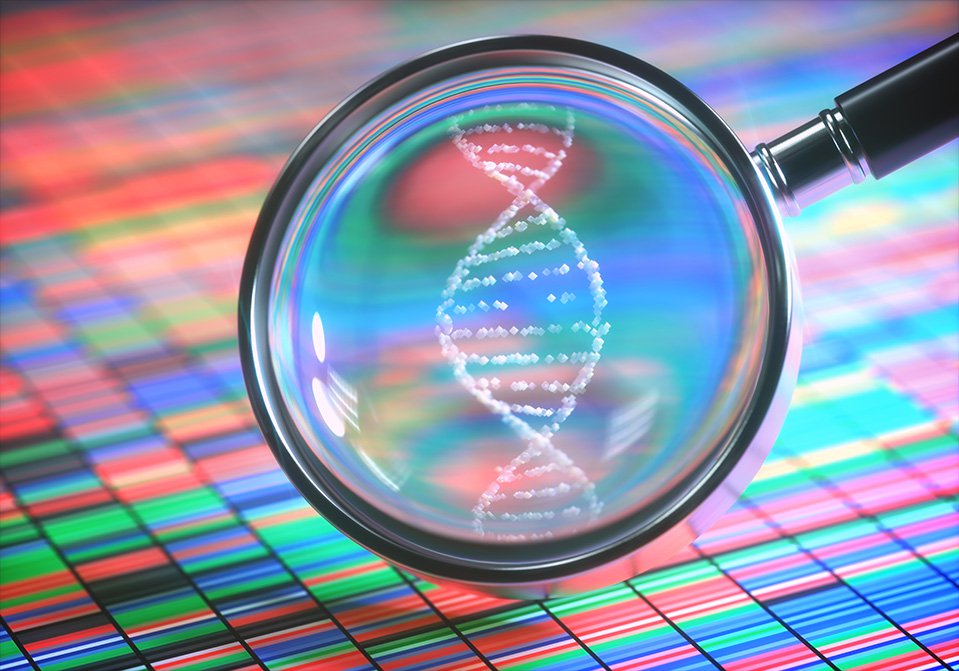
.jpg)
.jpg)

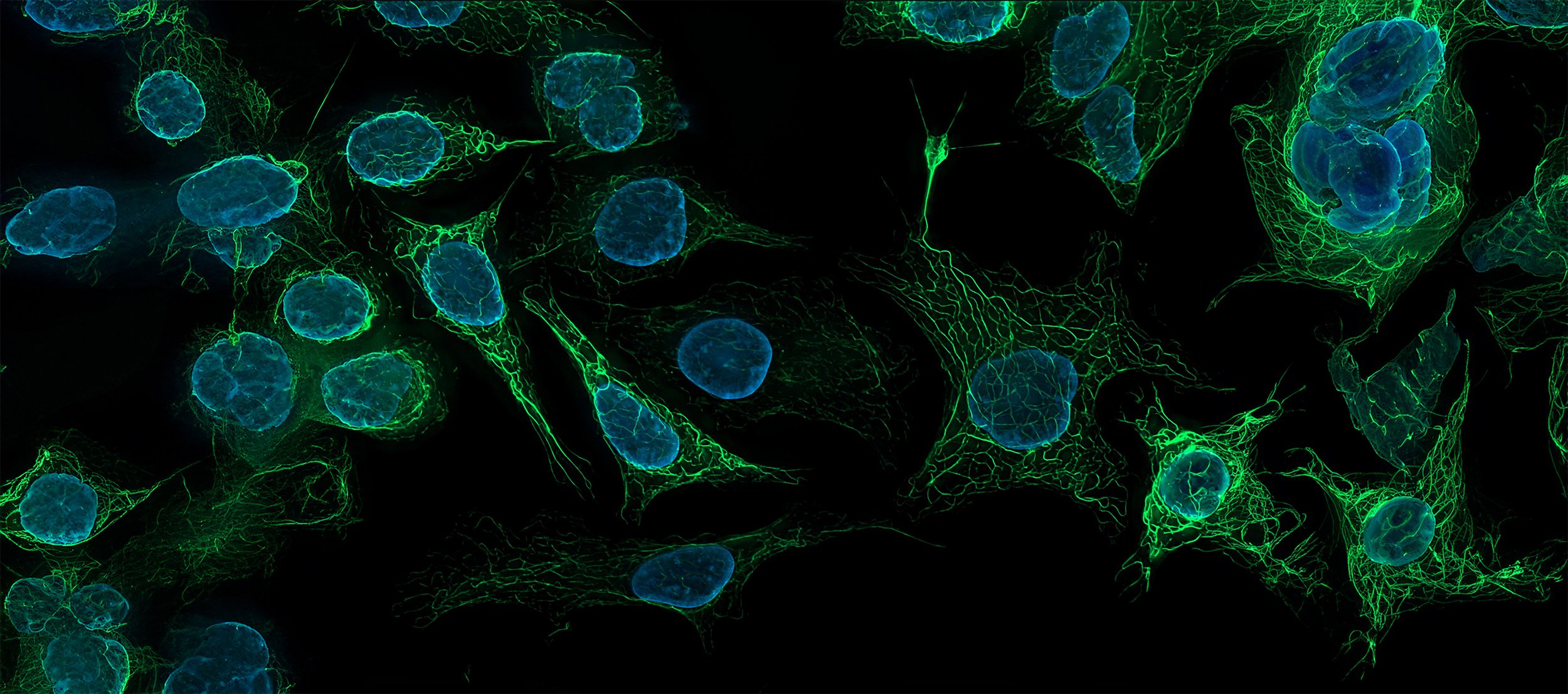
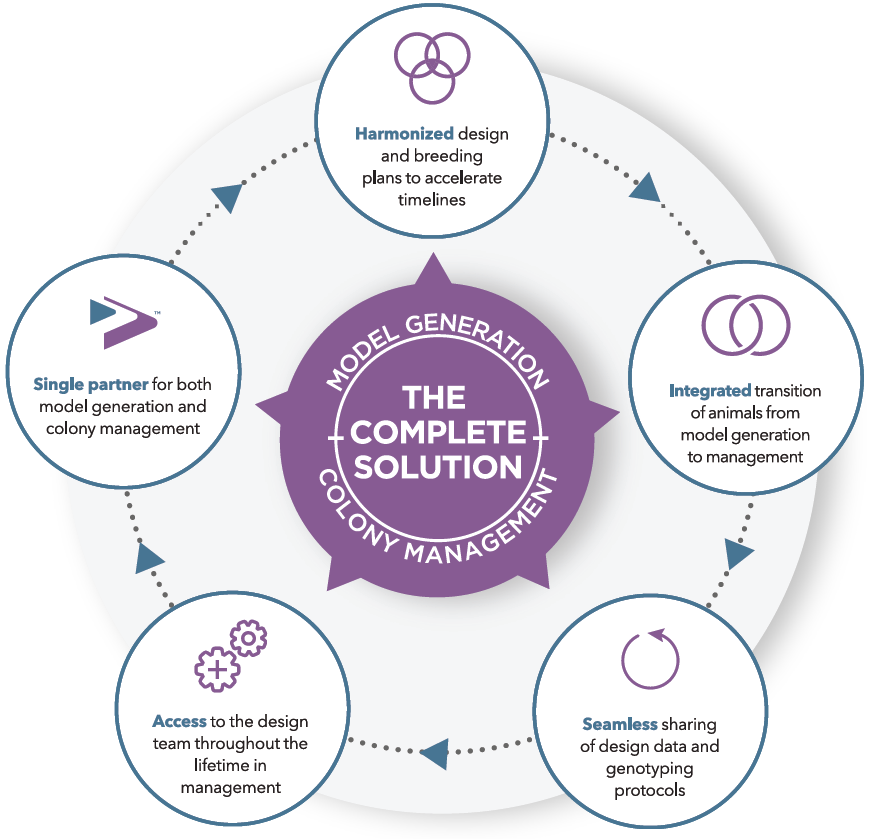
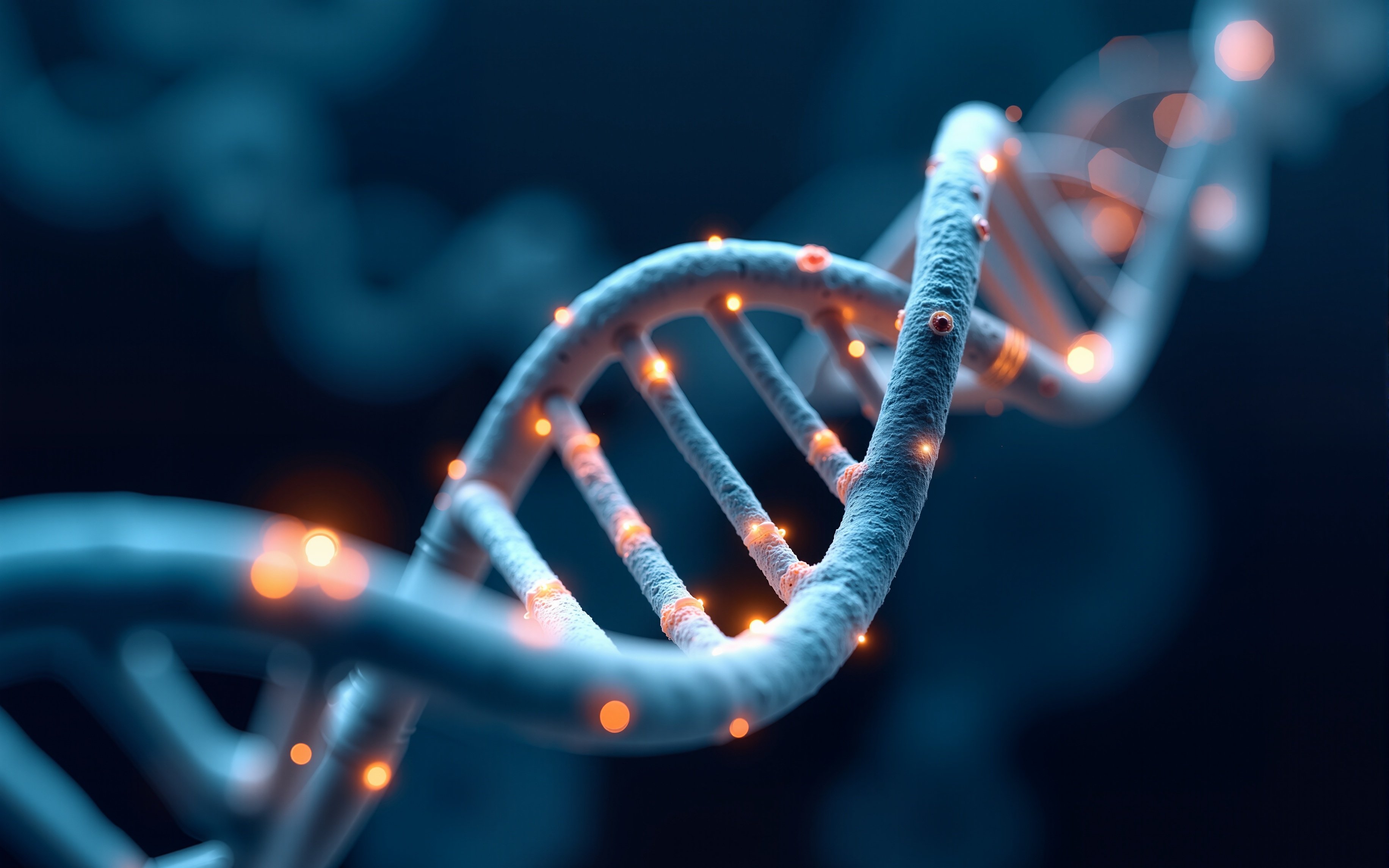
.jpg)

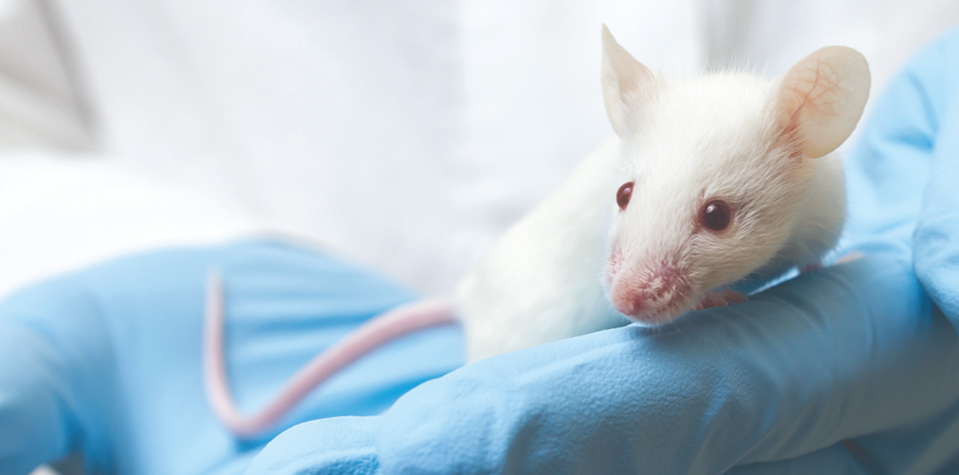

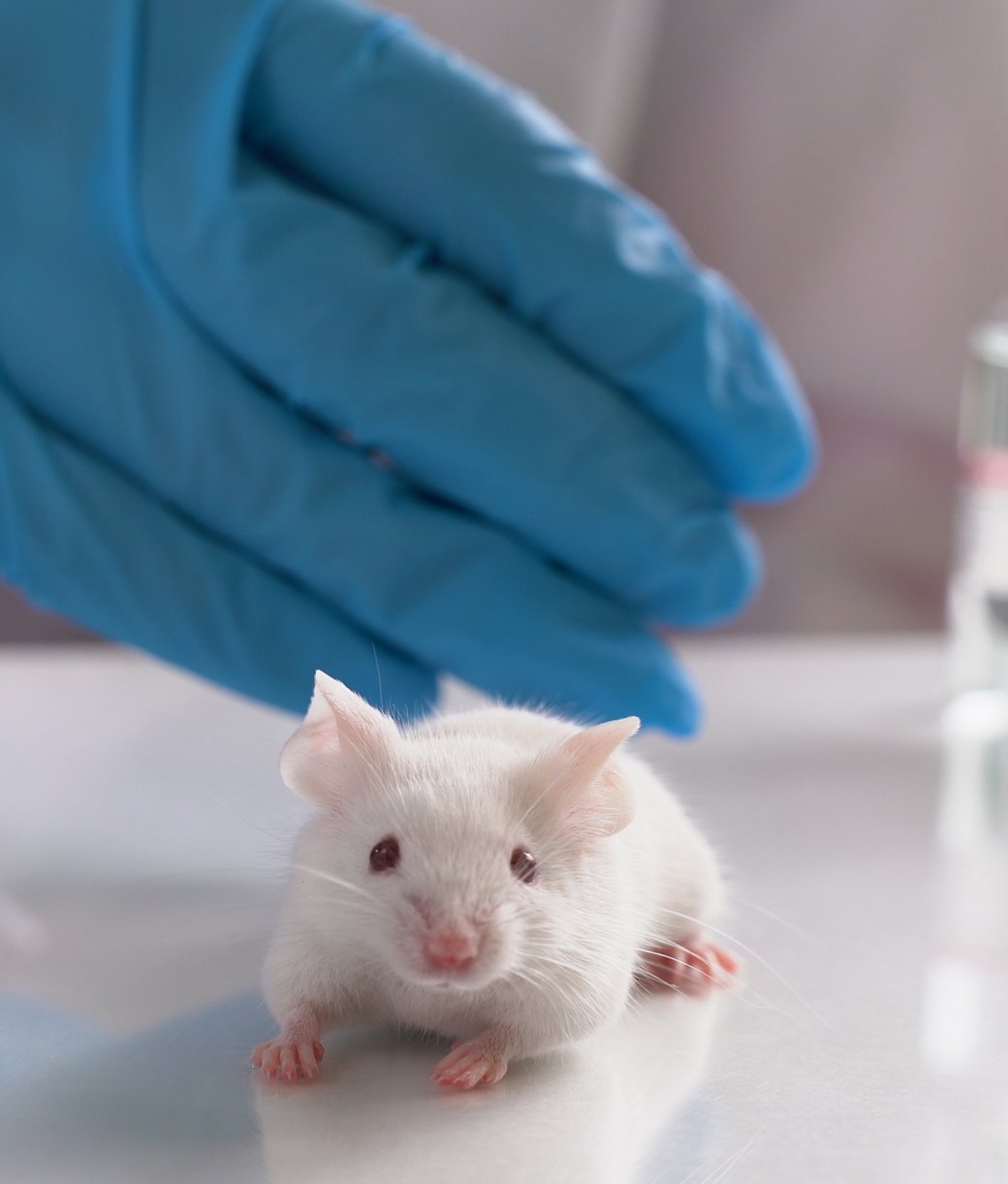

.jpg)

.jpg)






